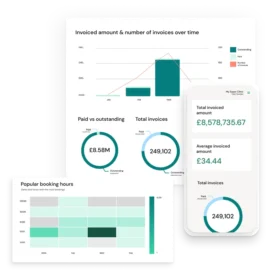
The cheque is
just the beginning.
We back new ideas, clear vision and an obsessive pursuit of change, writing tickets from £500k up to £2m. We get the founder mindset, having backed over 70 companies to date.
As B2B experts,
we go deeper.
We invest in B2B software businesses in sectors including fintech, data, AI, healthcare, vertical SaaS and energy. Our deliberate, research-led approach ensures we understand the dynamics of every company we invest in.

What we like.
Domain experts
Contrarian thinkers
Software products
Significant markets
Seed-stage businesses
Top-tier UK teams

Proud to work with exceptional companies.







































